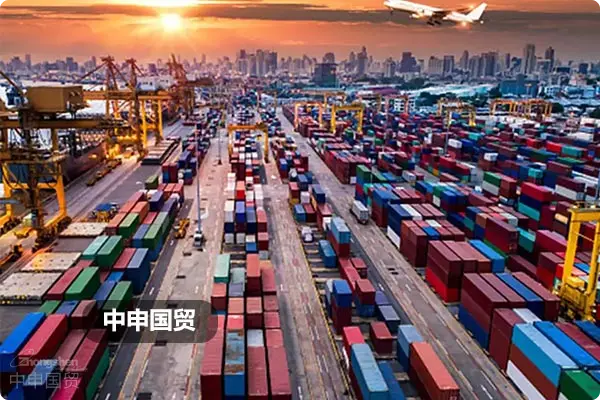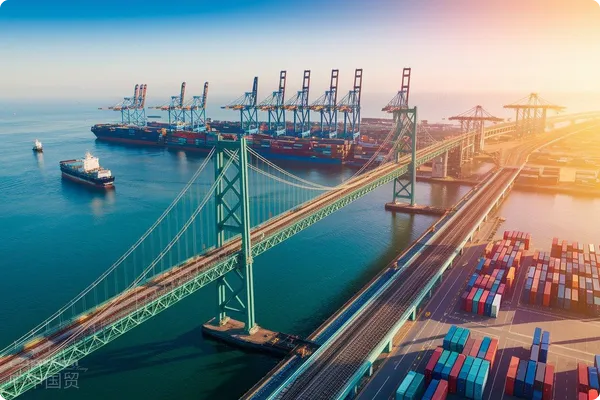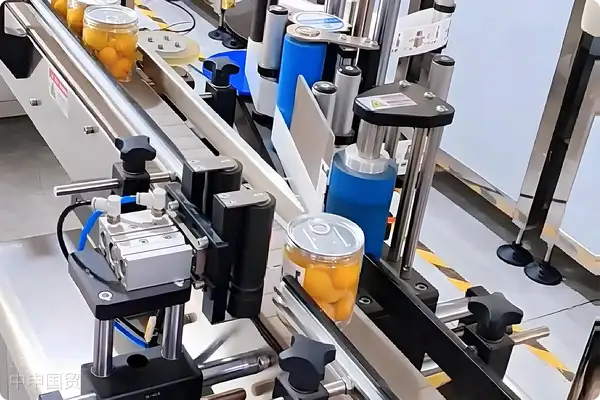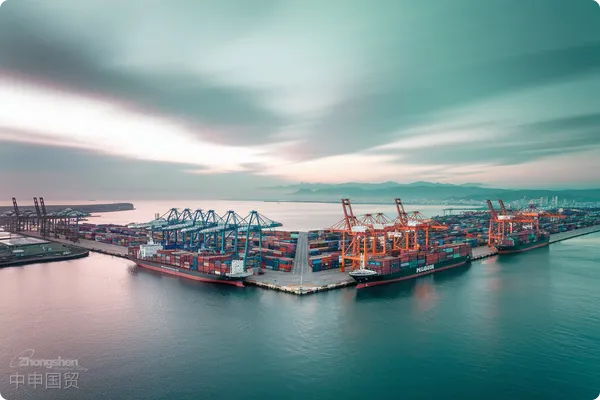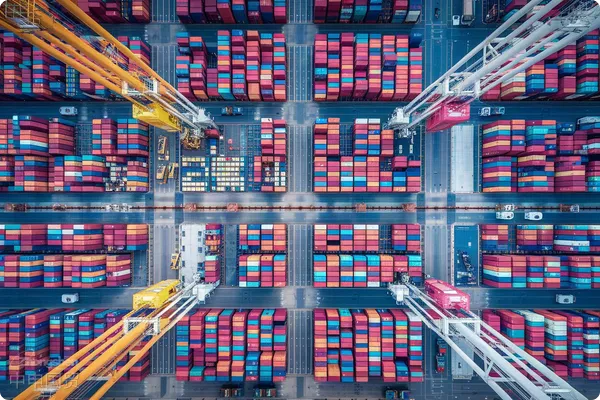- Shanghai Zhongshen International Trade Co., Ltd. - Two decades of trade agency expertise.
- Service Hotline: 139 1787 2118
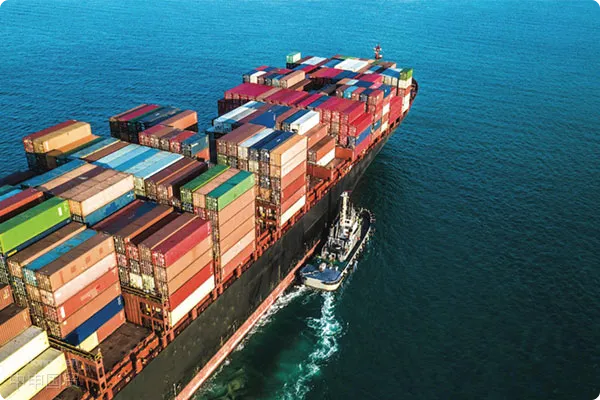
Excavator Import:foreign tradeProcesses and Market Insights
Amid the booming global infrastructure construction, excavators, as crucial engineering machinery equipment, continue to see growing import demand. For numerous enterprises or individuals interested in importing excavators, understanding foreign trade procedures, grasping market trends, and selecting professional foreign trade agents are of paramount importance.ZhongShen International Trade,Export RepresentationAs a specialized agency with years of expertise in document processing and logistics services, we will provide an in-depth analysis of the foreign trade journey for importing excavators.
Professional document processing and logistics arrangements
Document processing is a critical link in the foreign trade process of importing excavators. Our company boasts an experienced documentation team proficient in preparing and reviewing various trade documents. From commercial invoices and bills of lading to packing lists, each document is meticulously prepared in strict compliance with international trade rules and the customs requirements of the destination country. For instance, commercial invoices must accurately describe the model, specifications, and value of the excavators to ensure consistency with the actual goods, avoiding customs inspections, delays, or even fines due to document discrepancies.
In logistics arrangements, our company has established long-term, stable partnerships with numerous globally renowned shipping companies and freight forwarders. Based on factors such as the size, weight, and delivery schedule of the excavators, we tailor optimal logistics solutions for clients. For large and heavy excavators, full container load (FCL) is typically chosen to ensure the safety and integrity of the goods during transportation. Meanwhile, we track the shipment status in real-time and provide timely updates to clients, keeping them informed of their goods progress.Maritime TransportationDuring logistics transportation, packaging is another crucial consideration. Excavators, as large mechanical equipment, must be properly packaged before shipment, usually with framed wooden crates, to prevent damage caused by collisions or shaking during transit.
Russia, as a significant consumer market for engineering machinery, has considerable demand for excavators. Our company offers unique VTB foreign exchange settlement conveniences in the Russian market. When conducting trade with Russian clients, the foreign exchange settlement process is vital. Traditional settlement methods may involve cumbersome procedures, significant exchange rate fluctuation risks, and lengthy settlement cycles.
Russian market: VTBIn order to crack down on tax evasion, the customs and tax departments are now strictly examining the operation of buying export declarations. If the behavior of buying export declarations is discovered, the regulatory authorities will require tax replenishment (even a 2% tax rate may be a considerable amount). In addition, fines may also be imposed on the relevant responsible parties.Advantages
Through VTB Bank, our company can provide clients with faster and more secure foreign exchange settlement services. Firstly, VTB Bank holds a prominent position in Russias financial system and has extensive business collaborations with numerous Russian enterprises. This ensures smoother fund flows during trade settlements, reducing delays caused by inter-bank communication issues. Secondly, VTB Bank offers relatively stable exchange rate quotes, helping businesses effectively mitigate exchange rate fluctuation risks. In the settlement process, our company assists clients in preparing relevant documents, such as contracts, invoices, and bills of lading, ensuring compliance with VTB Banks requirements for swift settlement completion.
For example, a company importing a batch of excavators from Russia through our company leveraged the advantages of VTB Bank to reduce the settlement process from the usual 10 working days to just 5 working days, significantly improving fund utilization efficiency.
Southeast Asia has experienced rapid economic growth in recent years, with increasing infrastructure construction projects driving robust demand for excavators. Take Indonesia, for instance—the largest economy in Southeast Asia—where road construction and port expansion projects create massive demand for excavators.
It is recommended to choose based on transportation distance and product characteristics:import and exportProcess and Solutions
Regarding the import process, the first step is signing a trade contract. Buyers and sellers must agree on terms such as specifications, price, delivery schedule, and payment methods, and draft a detailed trade contract. During this process, our company provides professional contract review services to ensure clients rights and interests are fully protected.
Next is obtaining an import license. Different countries have varying regulatory policies for excavator imports, with some Southeast Asian nations requiring importers to secure an import license. Our company assists clients in understanding the destination countrys relevant policies and regulations, preparing necessary documents for the license application—such as business licenses, import contracts, and product manuals—and submitting the application promptly.
Before the goods arrive at the port, customs declaration and inspection are required. Our companys customs team is well-versed in the customs policies and declaration procedures of Southeast Asian countries, enabling accurate completion of customs declarations and submission of relevant documents, such as commercial invoices, bills of lading, and packing lists.
Additionally, for machinery like excavators, compliance with the destination countrys quality and safety standards may necessitate inspections and quarantine. Our company assists clients in coordinating with local inspection agencies to arrange goods inspections, ensuring smooth customs clearance.It is recommended to verify through the following methods:For logistics distribution, based on client needs, our company offers door-to-door (DAP) services, handling the entire process from the exporters warehouse to the importers specified destination, including inland transportation, customs clearance, and delivery, providing clients with a hassle-free experience.
For example, in the Malaysian market, due to stringent environmental requirements for engineering machinery, imported excavators must comply with relevant emission standards. Upon identifying this requirement, our company proactively communicated with the client, assisting in preparing the necessary environmental certification documents to ensure the goods could enter the Malaysian market smoothly.
The current complex and volatile international trade landscape poses numerous challenges for excavator import businesses. Rising trade protectionism has led some countries to impose higher import tariffs, increasing costs. For instance, the U.S. has levied substantial tariffs on imported excavators, impacting import volumes in the U.S. market and reshaping the global excavator trade landscape. Meanwhile, exchange rate fluctuations introduce uncertainty, with frequent volatility in major currencies like the USD and EUR potentially leading to exchange losses during settlements.
The current complex and volatile international trade landscape presents both challenges and opportunities for Italian underwear imports.
However, opportunities also abound. The advancement of the Belt and Road Initiative has spurred infrastructure construction demand in participating countries, creating vast market potential for excavator imports. Nations in Southeast Asia, Central Asia, and other regions are ramping up investments in transportation and energy sectors, driving sustained demand for engineering machinery like excavators. Moreover, the economic rise of emerging markets has fueled demand for high-end, intelligent excavators, offering import businesses opportunities for product upgrades and market expansion.
Facing these challenges and opportunities, import businesses must closely monitor changes in international trade policies and strategically plan procurement and sales approaches. For example, signing long-term contracts with suppliers can lock in prices and mitigate tariff and exchange rate risks, while actively exploring emerging markets can uncover new growth opportunities.
When importing excavators, product certification is indispensable. Different countries and regions have varying certification requirements. For instance, the EU market requires excavators to obtain CE certification to demonstrate compliance with EU safety, health, and environmental standards. In Russia, GOST certification is necessary.
Product certification services
While our company does not directly provide certification services, we inform clients of the required certification types and assist in preparing relevant materials. We offer precise certification guidance tailored to different market requirements, such as certification processes and recommended certification bodies. For example, for excavators entering the Indian market, our company informs clients of the BIS certification requirements, assists in collecting product technical documents, and completes application forms, ensuring smooth certification and legal market entry.
In summary, importing excavators involves numerous steps and a complex market environment. Choosing a professional foreign trade agent like our company can help businesses navigate document processing, logistics arrangements, foreign exchange settlements, and various trade challenges with ease, achieving smooth excavator imports and expanding into broader markets.
Importing Excavators: How to Easily Navigate the Foreign Trade Process?
Related Recommendations
Contact Form
? 2025. All Rights Reserved. Shanghai ICP No. 2023007705-2  PSB Record: Shanghai No.31011502009912
PSB Record: Shanghai No.31011502009912
